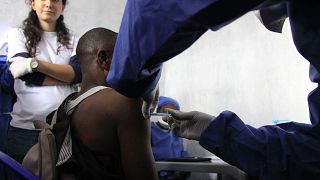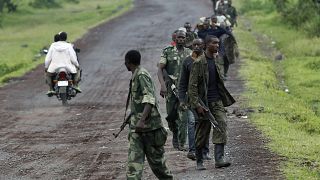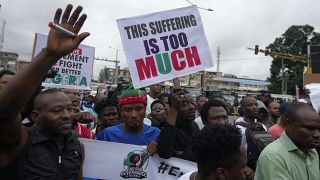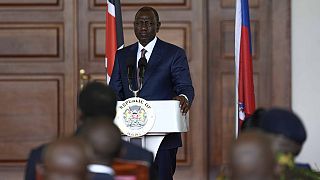Press freedom
As the world celebrates World Press Freedom Day on Monday, May 3, where does the continent stand?
A ranking was done by the Reporters Without Borders(RSF), 23 countries out of 48 are in red or black on the map, which means that the situation of journalists in these countries is still a cause for concern, according to Arnaud Froger, head of Africa at RSF.
"In almost half of the continent, and we are talking about sub-Saharan Africa here, the press freedom situation remains worrying; information is often blocked; either partially or completely. There are restrictions to prevent journalists from doing their job properly, and in the worst cases there are abuses; this means that journalists are intimidated, assaulted, sometimes arbitrarily arrested, or even killed," Arnaud Froger said.
Africa remains the most violent continent towards journalists, with more than thirty reporters killed in the last five years. There is still a significant number of abuses in countries such as the DRC, Nigeria, Somalia. These are countries where more than a hundred cases of abuse against journalists are being reported every year.
The Reporters Without Borders pointed out Algeria as one of the worst places for journalists on the continent. The country has dropped 27 places in six years and is now ranked 146th in the world.
"We saw it very well at the dawn of the coronavirus crisis when the Algerian authorities seized the pretext of the health crisis to put an end to a social movement, ban demonstrations and especially arrest people and journalists who covered them; This was the case of Khaled Draheni, whom you know, is the correspondent of Reporters Without Borders, who spent 11 months in arbitrary detention for nothing and was falsely accused and furthermore they wanted to silence him. "
The RSF has not only been fighting for a change to these atrocities at the global level but also on a national level in respective countries.
"One of the global objectives that Africa could set for itself, and this is also a task that the African Union could undertake, is to ensure that it is no longer possible in national laws to imprison and detain journalists for simply alleged press offenses. Then we obviously need very local approaches and awareness of circumstances that can be extremely changing, the transfer of power that took place two years ago in the DRC, even if for the moment it has not resulted in very concrete changes, it has also resulted in a very important change of tone; the reality of Gambian journalists is not at all the same today as it was under Yaya Jammeh. So there is necessarily also a desire on our part to accompany the changes and to make recommendations as close to the ground as possible in the contacts we can have with the authorities on the ground. "
Among the best-performing countries in Africa, we have Namibia, which retained the lead for the second year in a row.
Other countries include Ghana, the Seychelles and Burundi, which are also progressing in the right direction
"A country like Burundi, which has gone through five or six years of extreme crisis, its new president has released and pardoned four journalists who had been detained for more than a year, and he has begun negotiations to authorize the media that had been suspended, sanctioned or even shut down during the crisis. And even though the country remains poorly ranked because the problems are significant, Burundi has moved up thirteen places in this year's ranking. So there is no fatality in terms of press freedom, the political will is an absolutely determining factor to anchor the change in a sustainable manner. "









01:20
US presidential candidates have no clear Africa policies
Go to video
Algeria: Journalist Ihsane El Kadi obtains presidential pardon
01:55
Uganda invests $3 billion in new railway system for efficient transport
01:08
Türkiye under attack: African nations call out cowardly terrorism
Go to video
Two dead, 22 rescued after migrant boat capsizes in rough seas near Greek Island
01:20
Mpox: Head of Africa CDC urges partners to honour pledges as death toll tops 1,000